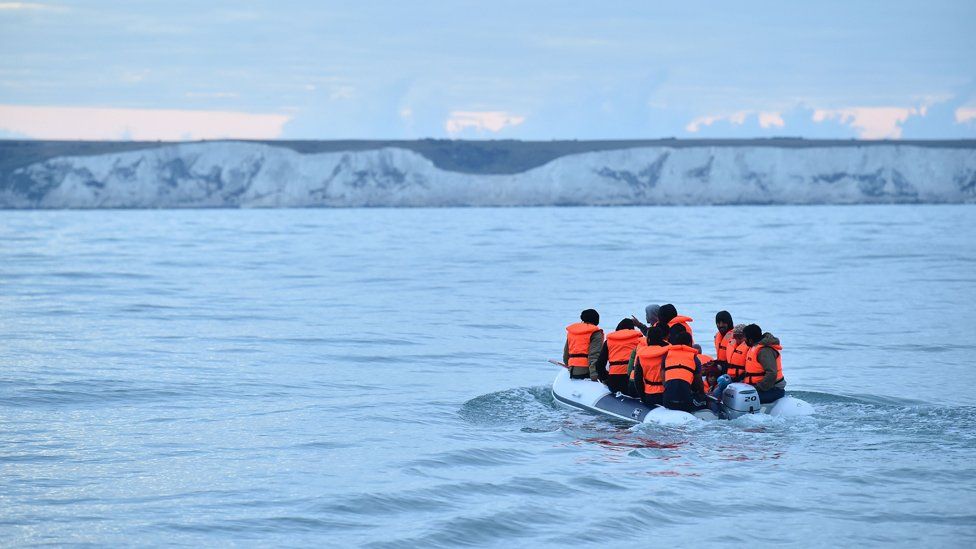ARTICLE AD BOX
 Image source, Getty Images
Image source, Getty Images
The House of Lords voted to overturn several parts of the Illegal Migration Bill
By Jonathan Blake
BBC political correspondent
Immigration minister Robert Jenrick says the government does not expect to make new compromises on plans to remove people arriving in the UK illegally.
The House of Lords has voted to overturn several parts of the Illegal Migration Bill - which ministers hope to pass before the summer recess.
The bill would place a legal duty on the government to detain and remove those arriving in the UK illegally.
It is key to Rishi Sunak's attempts to stop small boat crossings.
In the face of staunch opposition in the Lords, the government agreed to changes to the treatment of children and pregnant women.
Robert Jenrick challenged the government's critics.
He told BBC Radio 4's Today programme: "It's not a serious or grown-up way to conduct a debate to say 'we don't want this, we don't want that' and not to come up with an alternative."
"The UK has the most comprehensive plan to tackle illegal migration of any European country," he said.
MPs are expected to reverse changes made to the bill in the Lords but the draft legislation will then return to the upper chamber.
The standoff continues with time running out for the plans to be approved before Parliament's summer break begins next Thursday.
The bill, backed by MPs in March, is central to Mr Sunak's high-profile pledge to "stop" small boats crossing the English Channel.
It would place a legal duty on the government to detain and remove those arriving in the UK illegally either to Rwanda or another "safe" third country.
The government says it is committed to its plan to remove migrants to Rwanda, despite the Court of Appeal ruling it was unlawful. It has already said it will appeal the decision at the Supreme Court.
There has been concern about how children will be treated under the new migration bill, as well as accusations that existing UK regulations to prevent modern slavery would be undermined.
Although the legal duty to deport migrants would not apply to under-18s the bill would give ministers new powers to deport them in certain circumstances and detain them for extended periods.
It would also extend the limit on how long children could be detained before apply for bail from three days to eight. A previous version of the bill proposed allowing children to be detained without the ability to apply for bail for up to 28 days.
Robert Jenrick says cartoons in an asylum reception centre were painted over as they were not "age appropriate" for teenagers.
Additional reporting by Jasmine Andersson, BBC News

 1 year ago
36
1 year ago
36








 English (US)
English (US)